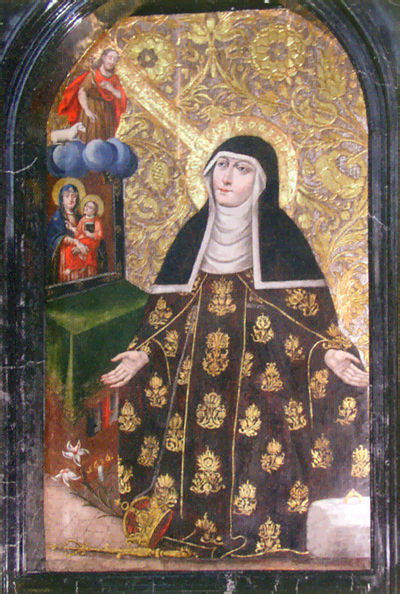Kinga of Poland or Kinga of Hungary or Saint Kinga born 800 years ago today, was a Hungarian princess and has been the patron saint of Poland and Lithuania since 1715.

St. Kinga of Poland. Source: public domain
Kinga, a member of the Árpád dynasty, was born on March 5, 1224, in Esztergom (in northwest Hungary). She was the eldest child of King Béla IV of Hungary and Maria Laskarina, who was the daughter of a Byzantine emperor. Her Hungarian name, a variation of "Kunigunde," connects her to her heritage and lineage. Kinga's sisters were Margaret of Hungary and Blessed Jolenta of Poland.
In 1239 young Kinga reluctantly married Bolesław V ("the Chaste") in Krakow, eventually assuming the role of princess as her husband rose to power as the High Duke of Poland. The marriage was primarily orchestrated by others, with the vow of chastity mirroring that of Bolesław's sister, Salomea of Poland.
Kinga demonstrated extraordinary generosity and compassion throughout her lifetime. Engaging in charitable deeds, she dedicated herself to aiding the less fortunate, regularly visiting the impoverished and offering assistance to those afflicted with leprosy. In 1249, Kinga journeyed back to Hungary to solicit assistance for the struggling Polish populace. n gratitude for her efforts, she was gifted the salt mine in Maramures. Subsequently, in 1251, she took the initiative to commence operations at the renowned salt mines of Wieliczka, leaving a lasting legacy of her commitment to the welfare of the Polish people.
Following the passing of her husband in 1279, she chose to sell off all her worldly possessions, donating the proceeds to support the poor. Kinga decided to become a Poor Clare nun and dedicated the remainder of her life to God in the monastery in Stary Sacz, where she was known for her support of families with many children.
Kinga died on 24 July 1292, aged 68. She was beatified by Alexander VIII in 1690, and canonized on 16 June 1999 by Pope John Paul II.
(J)
